British Palestine during the 1920-1947 period
By Philip Mudartha
Bellevision Media Network
12 Nov 2023:
The Arab riots against Zionists:
In April 1920, the World War-I Allies divided the former territories of the defeated Ottoman Empire. Syria and Lebanon went to France. Great Britain got Palestine. However, the Palestinian Arabs wanted an independent Arab Palestine within the Federation of Syria. Palestinian Arabs speak of 1920 as ??m al-nakbah, the “year of catastrophe.”
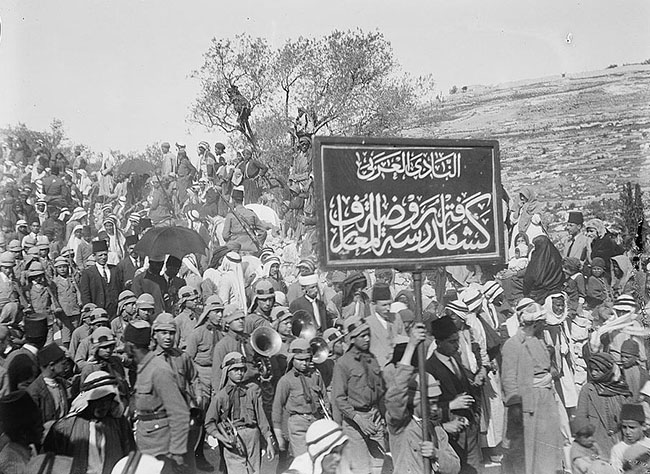
Arab massacres of Palestinian Jews in 1920
In April 1920 anti-Zionist riots broke out in the Jewish quarter of Old Jerusalem, killing several and injuring scores. British authorities attributed the riots to Arab disappointment at not having the promises of independence fulfilled and to fears, played on by some Muslim and Christian leaders, of a massive influx of Jews. In July 1920, a British civilian administration took over in order to implement the Balfour Declaration and set the upper limit of 16,500 Jewish immigrants for the first year.
In December 1920, the Arab Executive was founded to act as the representative of the Palestinian Arabs.
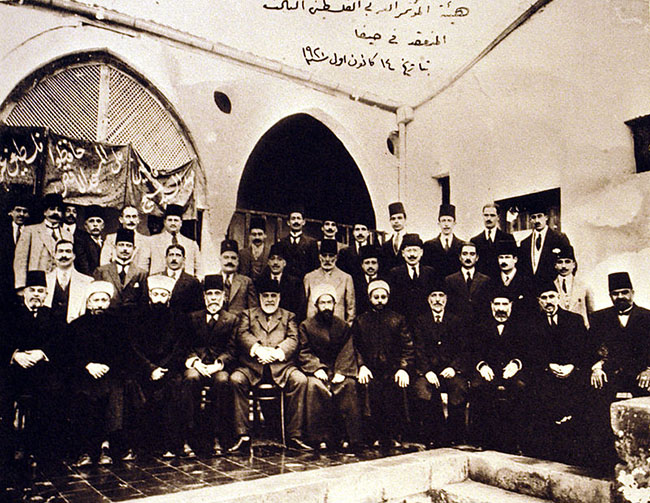
Palestinian Supreme Council in 1920
It set out the position that Palestine was an autonomous Arab entity and totally rejected any rights of the Jews to Palestine. This was the basic policy of Palestinian Arabs until 1948. On May 1, 1921, more serious anti-Zionist riots broke out in Jaffa, and spread to Jewish communities, in which nearly 100 were killed. An Arab delegation visited London in August–November 1921, which demanded the cancellation of the Balfour Declaration. It proposed the creation of a national government with a parliament democratically elected by the country’s Muslims, Christians, and Jews.
British mandate of Palestine:
In July 1922, the League of Nations approved the mandate instrument for Palestine, including its preamble incorporating the Balfour Declaration and stressing the Jewish historical connection with Palestine. On September 29, 1923, the mandate officially came into force. Palestine was a distinct political entity for the first time in centuries.
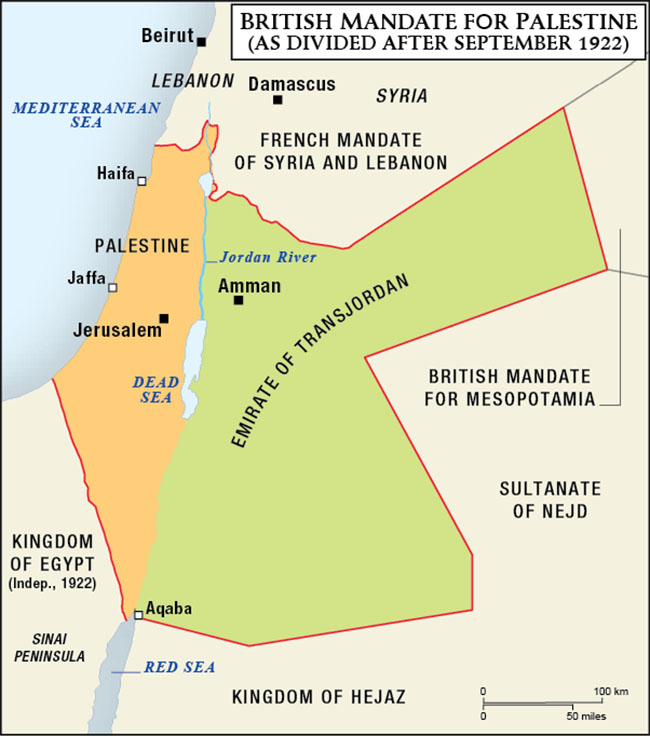
Palestine in 1922 under British Civil Administration
This created problems and challenges for Palestinian Arabs and Zionists alike. Both communities realized that by the end of the mandate period the region’s future would be determined by size of population and ownership of land. Thus the central issues throughout the mandate period were Jewish immigration and land purchases, with the Jews attempting to increase both and the Arabs seeking to slow down or halt both. These issues led to violent conflicts between Arabs and Jews.
There were factional feuds led by two notable Arab families of Jerusalem. In 1921 the British high commissioner appointed Am?n al-?usayn? to be the grand mufti of Jerusalem.
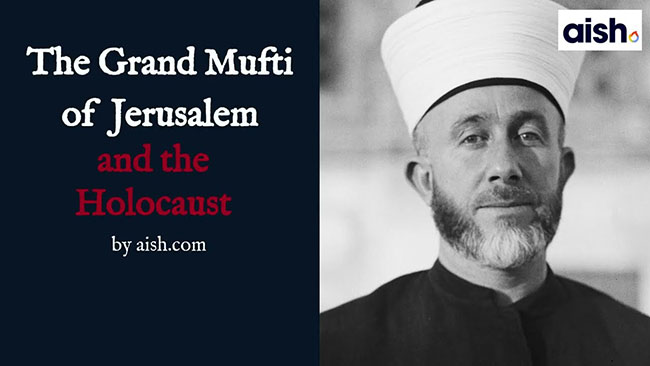
Grand Mufti led the Anti-Zionist riots in Palestine
As grand mufti, he presided over Supreme Muslim Council, which controlled the Muslim courts and schools and a considerable portion of the funds raised by religious charitable endowments. The grand mufti used his religious position and transformed himself into the most powerful political figure among the Arabs.
The Jewish factions in Palestine were the moderate Labour Zionists and the Revisionist Zionists. The former believed in cooperation with the British and Arabs. The latter wanted the establishment of Eretz Israel in the entire biblical Palestine. The World Zionist Organization, founded 1897, was the de facto Jewish Agency. Its president, Chaim Weizmann, remained in London, close to the British government. The Polish-born émigré David Ben-Gurion became the leader of a standing executive in Palestine. The Jewish community in Palestine established its own assembly, trade union and labour movement called Histadrut, schools, courts, taxation system, medical services, and a number of industrial enterprises. It also formed a military organization called the Haganah. The Revisionists formed their own military arm, Irgun Zvai Leumi, which was led by Menachem Begin who did not hesitate to use force against the Arabs.
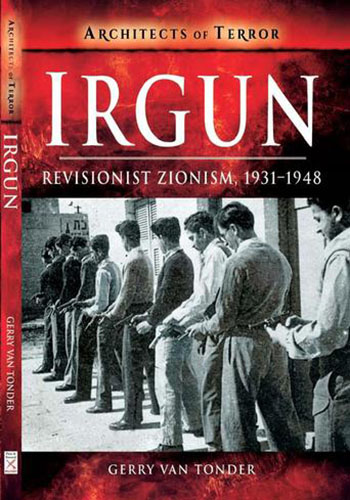
Irgun, the Zionist Terrorist Organization in Palestine
The first population census in Palestine was conducted by the British administration in 1922. Of 752,048 inhabitants, 660,641 were Palestinian Arabs (Christians and Muslims), 83,790 Palestinian Jews, and 7,617 others. Thus, 87% were Christian and Muslim Arab and 11% Jewish. Bedouins were not counted in the census, but a 1930 British study estimated their number at 70,860.
The second British census in 1930 registered a total population of 1,035,154 of whom 16.9% were Jewish. The Jewish population had increased from 11% of the population in 1922 to 30% by 1940. At the same time, the Palestinian Arabs had also increased to over 1,000,000 due to high birth rates among Muslims. In 1944, the Jewish community was estimated to number 553,600 of the total population of 1,764,520. The religion-wise break-up was 31.37% Jews, 60.15% Muslims, 7.68% Christians and 0.81% others.
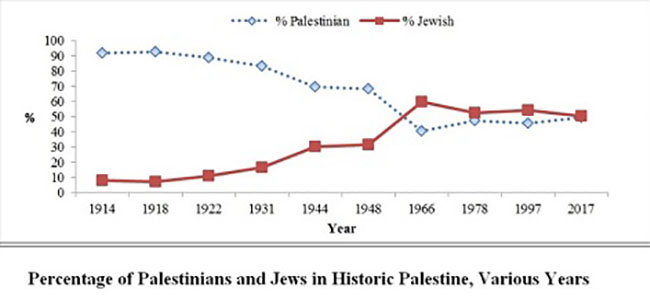
In 1947, following increasing levels of violence, the British government under Labour Party leader Clement Atlee decided to withdraw from Mandatory Palestine. The 1947 UN Resolution 181 approved Palestine Partition Plan into two sovereign states, Jewish and Arab, giving 55% of land to the Jewish state. The partition plan excluded Jerusalem which would be administered by the UN. The Palestinian Arab leadership rejected the plan to create the as-yet-unnamed Jewish State and launched a guerrilla war.
(To be continued)
 Write Comment |
Write Comment |  E-Mail To a Friend |
E-Mail To a Friend |
 Facebook |
Facebook |
 Twitter |
Twitter |
 Print
Print 


















